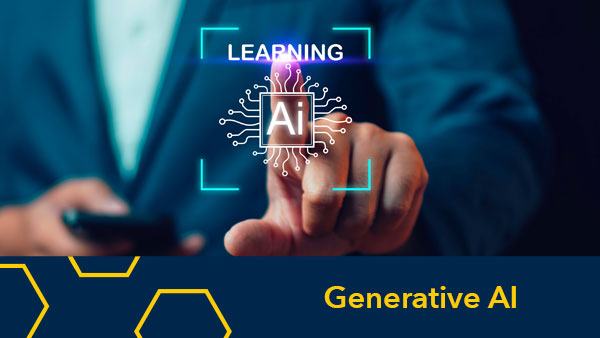Jeremy Nelson, Director of the XR Initiative
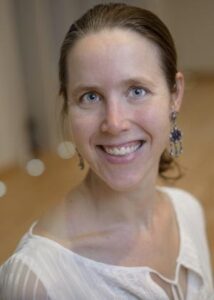
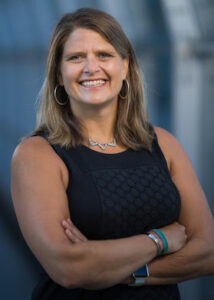
In this week’s MiXR Studios podcast, we talk with Rebecca Pagels, the executive director of development and alumni relations for the University of Michigan’s School of Information, and Amy Klinke, a senior director for the University of Michigan’s Business Engagement Center. Both Rebecca and Amy were instrumental in bringing together the XR community at U-M and helped set the stage for what would ultimately become the XR Initiative. In their work, they engaged alumni and individuals at corporations such as Disney, Lenovo, Microsoft, and Oculus to develop mutually beneficial relationships with the university. In this episode, we explore the XR journey the university has taken in the past four years and what the future may look like.
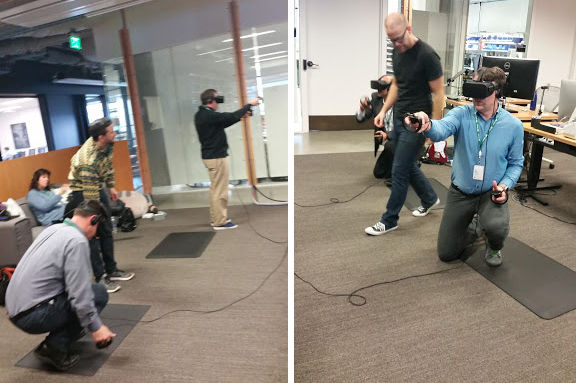
In late 2016, Rebecca and Amy brought together a group of faculty for a trip to Seattle to visit Microsoft’s Mixed Reality team, and in early 2017 a trip to the Oculus team. The university group, a mix of faculty from Nursing, Medicine, Dentistry and Information, shared work occurring on U-M’s campus and explored some of the cutting-edge technologies these corporations had developed. Out of that trip came a number of synergies between faculty and grants from Microsoft and Oculus followed not long after those meetings. These corporations were interested in partnering with U-M because of the broad range of disciplines that were exploring how best to use these technologies for research and teaching. The partnerships and investments from these corporations really helped spur a lot of innovation and early exploration that set the foundation for where we are today.
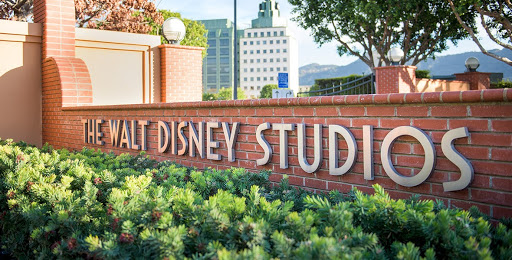
We talk with Rebecca about the early influence and recommendation from U-M alum and CTO for Walt Disney Studios, Jamie Voris. Jamie leads a group at Disney Studios that has been experimenting with XR technologies for animation and virtual production and is a member of the School of Information external advisory board. He encouraged Dean Tom Finholt to invest in these technologies and pushed for U-M to be a leader in this space for students. Along with Disney, Lenovo was an early partner with the university and funded some hardware and application development to explore VR in education.
Companies that are looking to engage with the University of Michigan can start with the Business Engagement Center. There are many ways to engage in terms of recruiting students to funding research and strategic giving. With the XR Initiative in place, we have a centralized initiative for XR companies to focus their efforts and begin to work with faculty and students. In addition to these areas, companies can work with individual schools and colleges like the School of Information to work on specific projects, give talks or presentations, and strategic giving related to that school.
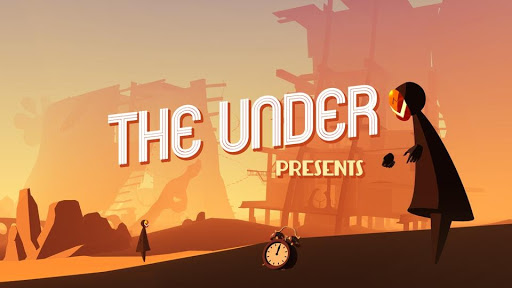
We explore some interesting projects that faculty have worked on in collaboration with companies like Masco Corporation on how to design and build your kitchen and bathroom and a new project with the University Musical Society. A team of students is working with Professor Michael Nebeling to create a shared experience for the community to engage with the musical society in Augmented or Virtual Reality. We discuss how emerging platforms like The Under Presents are creating unique social VR experiences that combine live performers and synchronous participants. Additionally, we touch on how XR technologies can impact athletics from performance training and support to engaged spectator viewing.
We conclude our conversation with a discussion around the future of XR related to collaboration and shared presence. We discuss what opportunities there are to engage with the university and explore how COVID and remote collaboration can occur in AR and VR. There are unique opportunities to work with experts from disciplines across our 19 schools and colleges to transform the future and shape how the future of higher education is delivered. We invite any interested company to reach out to us.
I enjoyed my conversation with Amy and Rebecca and am grateful for all of their work early on and continued support and collaboration. Please share with us what you would like to learn more about in the XR space at [email protected].
Subscribe on Apple Podcast | Spotify
Transcript: MiXR Studios, Episode 20
Jeremy Nelson (00:09):
Hello, I’m Jeremy Nelson. And today we are talking with Rebecca Pagels, the executive director of development and alumni relations at the university of Michigan school of information. And Amy Klinke, a senior director at the university of Michigan’s business engagement center. We are talking about their early work with XR and engaging faculty and corporations to create the community we have today coming up next in our MiXR podcast. Hello, Rebecca and Amy. Thank you for joining me today.
Rebecca & Amy (00:53):
Hi, thank you.
Jeremy Nelson (00:55):
I’m so excited to have our conversation today and learn a little bit more about kind of the roots of the XR initiative and just XR more broadly at the university. Rebecca, why don’t you start and kind of tell us a little bit more about the history of heard that from a couple of our other guests, but I’d love to hear from your perspective.
Rebecca Pagels (01:15):
Yeah, and this has been a really great collaboration that started in early 2016 and it’s involved academics and internet, uh, external partners and deans. And so it’s been a really terrific partnership. And in early 2016, my Dean and I happened to be having a conversation with an alum. Who’s been pretty at the core center of the XR initiative, Jamie Voris with Disney, and he was extremely enthusiastic. And, um, we took this advice and we had a chance to explore it with a few other companies, including Microsoft and, and Google and, um, Magic Leap at that time. And again, they just were talking about how this space could be truly transformational in a variety of ways in terms of how we live and work and, and experience our daily lives. Um, and, and Tom and I thought that was pretty exciting. And some of the work in that space really is at the center of the school of information, but of course it’s cross disciplinary.
Rebecca Pagels (02:14):
And we took this advice back, um, to campus and started having conversations with other deans as well as academic leaders, such as the head of academic innovation. Um, and, and really there was a lot of enthusiasm and it turned out a number of faculty doing little bits and pieces in their unit, but not really coming together. And so we were able from those conversations to build a working group of faculty who sat down and really brainstormed about what this could mean for the University of Michigan and learning and research on campus. And from that those conversations, we created a whole research document and a graduate certificate. And this was probably in about 2018. At the same time, we were really actively continuing to engage with, uh, various, um, companies as well as individuals, alumni, and friends of the university who were particularly interested in this space.
Rebecca Pagels (03:10):
And so we got a lot of feedback on the graduate certificate and curriculum and teaching and what we should be thinking about in the classroom from an industry perspective, as well as thoughts about relevant research areas. Um, and we were able, it took a bit of time, you know, we’re a large university and there’s a lot of, um, process, but we got the white paper approved and the graduate certificate officially launched, um, January, 2020, um, at the same time and Jeremy, you know, this better than me, the, the provost became very enthusiastic about what it could mean for liberal arts education and, um, invested pretty heavily in academic innovation to not just support curriculum and research in the way I’ve described, but also support the deployment of the technology in classrooms to, um, to enhance learning particularly on complicated or social humanitarian issues. So, so that’s really, um, a broad sort of sweep of what happened. Um, I think we, from the conversations and Amy feel free to add in just a second, that we really are pretty unique in, in the higher education space about the process, as well as how we really integrated it in a variety of ways and across disciplinary manner.
Jeremy Nelson (04:26):
Yeah, no, I think I’ve, I’ve talked to a number of other colleagues at other institutions and they’re like, how were you able to do this? How did you like get everybody together? I’m like, well, a lot of that was already done. Um, and I was able to come in and, and build on that a lot of that work so
Amy Klinke (04:41):
Well, what was interesting about the whole experience is that once we put the word out to faculty, um, they just sort of poured out of the woodwork. Cause I think, um, you know, anywhere from kinesiology to nursing, to the med school, to dentistry, they came out of, they just, they, so I think what, what, what we touched upon and what, what Jamie Voris from Disney really said is that he said, this is going to be a big deal and turns out, many of our faculty are also agreed, right? And they were already secretly or private, not secretly, but working in it on their own. And when they heard that there could be some sort of other, there were other people that they could collaborate with. There was a lot of excitement around it. Um, and I really give a lot of credit to Tom Finholt at the school of information because he was, he was the first person to really, as a Dean level to say, yeah, let’s, let’s move forward with this.
Jeremy Nelson (05:38):
Yeah, no, I it’s. It’s been, it’s great. As I’ve when I started out, I tried to meet with as many of those folks as possible. And it’s so many, I mean, I met with over a hundred, you know, faculty and staff and students. And so there’s just a lot of interest here, a lot to work with. Great. Yeah. Well, what are some of those, you know, talking about the collaborations or the space, what are some of the examples that you’ve seen amongst your faculty, Rebecca, maybe with in SI or even more broadly that you’ve been witness to?
Rebecca Pagels (06:10):
Um, I mean, I think that that has been one of the results or outcomes of this, um, collaboration. And so from, um, these early conversations with faculty, we’ve seen some really fantastic research projects, obviously across teaching. And so one of the cross teaching examples is medicine and, um, EECS computer science and a faculty member in computer science, working with, um, a researcher in pediatric emergency medicine to develop AR applications, um, to improve our delivery of emergency care. And that’s just one example. Another example is education and medicine they actually were using. I think this is really important to all of us these days. They were using virtual reality to reduce distractions and teen drivers because of course, teen drivers are constantly distracted with their phone and, and such. And so they were effectively able to do research and I’ll just highlight one other project because I personally think it’s fun.
Rebecca Pagels (07:13):
And then, um, Lynn Amy also added, and, um, there was a nice collaboration with our se, um, which is our, uh, sports management initiative, um, and faculty at the school of information, looking at using augmented and virtual reality, um, technology to allow athletes specifically in this case, tennis players to visualize information about how they were playing. So to be able to see what their stroke looked like, what an like correct stroke should look like and really improve the learning outcomes. And one can imagine today where we are much more constrained in terms of how we can face to face interact, that this kind of technology becomes even more important in how we continue to learn in a COVID-19 environment.
Jeremy Nelson (08:01):
That’s fascinating. Yeah. There’s so many areas within athletics that could be explored. And, uh, maybe that’s someone we should talk to as a future episode.
Amy Klinke (08:11):
I mean, well, in fact, we, I mean, a lot of this did start off too with how do we include, um, Michigan athletics, right? And, and there’s some, some folks are more interested than others depending on the coaching and their ability for their appetite for risk. But it’s a real interesting idea. And, um, when I came in, it was really about how do we bring industry partners involved? Like how do we get devices or, you know, do they, are they interested in, I will say that I think we’re industry sees a lot of excitement is in the med space. Um, it was really easy to get, uh, some of our partners excited, especially like Lenovo or Oculus to see the impacts that, um, AR could have, or XR could have on the medical population. And, and we took a trip back in, gosh, I don’t know what, what year was, that was that three years ago, Rebecca?
Rebecca Pagels (09:04):
Um, are you talking about to Microsoft? It was fall of 2016. So that just tells you how we’ve, we’ve moved forward or fairly early 2017.
Amy Klinke (09:14):
So when we went out there, what was really cool about that is that we brought these disparate faculty who had never really have talked to each other. And there were so many, like that’s where one of my favorite collaborations came through with a, um, with a pediatric ER and the school of nursing. It’s like, they both realized they’re like, Oh, we’re kind of doing similar things in training our students and that, um, that really erupted into some great partnerships.
Jeremy Nelson (09:38):
Yeah, no, I’ve, I’ve, I’ve worked with some of them and then, uh, interviewed, uh, Michelle Aebersold and, and dr. Prashant Mahajan and yeah, they’re, they’re continuing to innovate and push in that space. Well, Amy you’ve, you’ve helped facilitate some really interesting collaborations with Oculus, particularly in, in dentistry. Would you mind sharing a little bit about that and how that came together and then
Amy Klinke (10:02):
Sure. I mean, it’s, it’s a, it’s interesting, once the call went out to faculty, the faculty kind of came out of the woodwork in ways that I didn’t expect. I mean, that was one of the best things about this whole. This whole process is, uh, Rebecca and I started working on it and we heard from Hera and she was doing this, uh, Hera Kim, who, um, is just this remarkable faculty who looking about how to do jaw surgery, which is a really tiny space, like in someone’s mouth. And how do you train someone to do that with using, without actually doing it? And so, um, when we applied to Oculus, we went out there when we were out in Seattle back in 2016, gosh, I can’t believe it was 2016.
Rebecca Pagels (10:45):
I think it was actually early 2017. I might, I was going back in my head. I think it was February, 2017 and it didn’t snow here. Right.
Amy Klinke (10:56):
But we had me, you know, I ran them. I reached out, um, to Oculus in 2016 and I didn’t hear anything. Right. And then all of a sudden I get an email from the founder of Oculus. Who’s now the CTO who, um, was like, we want to work with Michigan. Um, and so we were able to meet with him and, uh, go to their campus in Seattle. Um, and from that we submitted, uh, several proposals in to the two that they picked were the Prashant, um, and Michelle Aebersold, uh, proposal. And then the Hera Kim one, and that one has the Hera Kim, one is super impressive. It’s um, moving forward. So, uh, so they’re teaching how to do jaw surgery, which is really cool.
Jeremy Nelson (11:39):
Yeah, no, I, we we’ve interviewed her a couple episodes ago and talked about, you know, she was able to secure almost 150 Oculus Go headsets and she passed out 120 to all of her dental, one students to explore models of teeth, start to prep for moving on to that next level of surgery to just understand the space better. And she’s had some really interesting findings and learnings and, you know, just understanding, you know, the, there’s not really a normative context around these devices. They’re not as ubiquitous, you know, students don’t know them like a phone, right? Like there’s, there’s, it’s a computer, right. You’ve gotta update it and you gotta patch it and you got to log in and, um, and battery has to be charged. And just some interesting
Amy Klinke (12:21):
Scene two, because I think, I mean, if you think about, so if you think about these companies and why would they partner with a university, right. It’s really about, um, there’s two in my mind, there’s two ways, two things like traditionally these glasses or goggles or whatever you wanna, whatever, you know, um, form they take, um, are used for gaming, right. And that’s a niche market. So if you think about the business side of it, you know, gaming, I mean, it’s a big one, don’t get me wrong, but really what they’re trying to figure out is where we’re can we grow and expand this market so that it becomes more ubiquitous around these different verticals. And I think, I think what I think, um, what they saw, what they see in Michigan is that we’re so, you know, um, we have top 10 schools in almost every discipline and, um, and med, I think is our first area that they want to explore.
Amy Klinke (13:11):
Right. And if those med students know how to use an Oculus go, that’s even better when they go to their new job, right. They’re going to use Oculus Go’s or whatever device. So, I mean, we try to be agnostic, but I think it’s important to recognize the business opportunity for them.
Rebecca Pagels (13:30):
Well, and Amy, I would add to that, I think where they first gravitated towards. And certainly it’s because the university has a lot of expertise is of course medicine, but then another really strong area of interest is manufacturing. And then depending on the partner, it’s also even, um, using the technology to enhance education. So I think there’s a lot of areas. And then, um, a few other projects that they’ve funded are really around how to use this technology to allow somebody who doesn’t have devices, or doesn’t have a lot of, um, knowledge in this space to build and create and understand.
Rebecca Pagels (14:07):
And so that that’s, that’s an area of interest as well, because they don’t necessarily have access to novice learners as you will in the same way that we do. And so we can really begin to test and explore that. And, um, you mentioned Lenovo, and I really do think in, in many ways, Lenovo was our first corporate partner because they funded something even right at the onset of 2016 when we were just starting to explore conversations. And it was, uh, you know, um, supporting again, application development. So a little bit more around the user. And since that time they’ve been integral in donating a lot of hardware that has, um, allowed us to deploy it more in the classroom. So they’ve been as well as research. So they’ve been really, really a great partner as well. Um, and I just also want to mention, just because I think if we’re thinking about our external partners, we really have had a lot of individual advice as well and feedback and support. And I think that’s been critical to the success. We’ve had an individual, maybe Jeremy, you’re going to be talking to him at some point who created the spectacles, um, at Snapchat. And he was somebody who came in and gave a lot of feedback and advice as we were getting started. And that’s been really helpful for us as we think about the directions and the activities and how we teach and use this technology.
Jeremy Nelson (15:30):
Yeah, no, we had planned to have him be one of our, uh, keynote presentations at the XR Summit that has had to be rescheduled. Um, we’re looking to do spring of 2021, assuming everything’s safe at that point. It may have to be virtual. I
Rebecca Pagels (15:48):
Okay. But it’s going to say they’re in the right space where maybe, maybe you do it in a fun and virtual, um, university of Michigan environment. Right. This will be a great way to do that.
Jeremy Nelson (15:58):
Yeah. Yeah. I know. There’s, you know, uh, with, with, with COVID and the desire to do more immersive teaching and learning as people are remote, there’s a number of folks it’s like, Oh man, I wish we were a little bit farther along or we had more devices. So I think, you know, we’re, we’re still at that spot where we’re trying to generate more content and trying to position where we can deploy the technology more broadly. We know we have a large visualization studio lab on North campus. We have some pockets of devices throughout. And so we’re really at the initiative trying to think about how do we manage content? How do we manage devices? How do, how do we get that out there for students? How do we understand how it works within their courses connecting with our LMS Canvas system? So maybe along that line, like how maybe this is for you Amy to start with, but how do I external partners continue to support or engage with the University of Michigan around XR or more broadly technology?
Amy Klinke (17:00):
Um, that’s a great question. And I think there’s a couple of different ways there’s reaching out and then re um, me reaching out or Rebecca reaching out to them individually to people or alumni that work at those companies, as well as that, uh, external partners hearing about the great work that we’re doing and reaching out to say, how can we play? Right, how can we get involved? Um, and so I think what’s been really great since you’ve started Jeremy. It’s been really great because we actually have a, we have like a, a thing to talk about. Right. And I think right now with, uh, COVID-19 and, you know, discussions around online learning, this is such a great opportunity to say we have something in place we’re testing, we’re, we’re, we’re, um, working with, uh, faculty to, to figure out new, new, and different ways to do it. I think there’s a lot of interest in this. Um, sometimes you have to navigate through like, who’s the, who are the right people to talk to at those companies. Yep. Yep. Cause sometimes you also wanna, you know, it’s a tricky relationship sometimes because they’re, they also look at Michigan as a vendor. Um, you have to really walk that line.
Jeremy Nelson (18:13):
Yup. Yup. Rebecca, in terms of your role within alumni relations and development at School of Information, you know, I know you work collaboratively with Amy, how does it similar? How is it a little bit different?
Rebecca Pagels (18:28):
Yeah, I mean, and I think, I think, uh, Amy really described how we might start or continue to engage our external partners, um, where I sit, I also think there’s a strong desire for students to have opportunities, whether it’s to learn or ultimately get jobs. So of course, supporting course projects, capstone projects, this could be at a variety of different units supporting internships and jobs. And again, I get really excited because I think about this space as so broad. It could be that they’re hiring somebody from kinesiology. I was just talking to a company where they hire less tech people and more kinesiology individuals or sports management people. It could be people in LSA. And so I get really excited when I think about opportunities for students that way, of course, um, they can be speakers. I think, again, that’s something that’s really great for students and faculty to hear from experts.
Rebecca Pagels (19:22):
And I, I tend to think as well on that partnership side with collab with research, it can be of course funding or supporting research, but I think they also bring unique perspectives. So it’s partnering on that research as well. And finally, I think really, um, and again, this could be through academic innovation, but really investing in the ways we’re delivering this in the classroom. It could be, you know, as I said, capstone courses, but it could also be more of that financial investment that allows us to perhaps acquire the technology, um, train students or faculty to use it in the classroom. Um, even help us think about novel ways that we can begin to introduce, introduce it to learnings that might be on our, um, Coursera platform, for example. So really helping us extend these technologies.
Jeremy Nelson (20:14):
Well, yeah. And, and, you know, uh, one of the faculty in the school of information, professor Michael Nebeling is produced a XR, MOOC specialization that we’ll be launching on Coursera. And I think, you know, he talks a lot about some of his work with, uh, research with partner organizations and how that’s helped kind of shaped his work as well as student teaching. So I think it’s pretty exciting.
Rebecca Pagels (20:37):
Yeah. And I could imagine actually, and that his, um, move that will be offered is also really for the lay person, because one of the areas that he’s particularly focused on and one of the areas, I think that’s nice and interesting to industry partners as referenced before is how do you explore, experience, build, use these technologies when maybe all you have is a phone or a computer. And so I think a lot of how we’re going to see this technology introduced at least initially is through devices that everybody already has in their pocket or on their desk.
Jeremy Nelson (21:10):
Yup. Yeah. Ever, Oh, so many people have a smartphone, right. And it is the way Apple and Google are moving. They’re, you know, they’re building the foundation for AR as more ambient computing environment where it’s just, everything’s connected for sure. Um, well, how, how do you both see XR contributing to U of M beyond the classroom and research? Or where do you want to see us go or take this? Um, how can I help shape it or we can take it forward.
Amy Klinke (21:40):
I mean, I see, I see it going in a couple of different ways. I mean, in, so the thing about XR is the it’s, the opportunities are almost limitless, right? Cause we’re thinking of any completely new platform in which we can learn from. So like I see it happening in the classroom as a new way of learning. So say we can’t go into do a physical lab in physics, but you can certainly do that in AR pretty easily. Um, but also it’s funny yesterday, I was talking to a builder who wants to work with the University of Michigan. And I was reminded of what are the interesting things that Michael Nebeling did a research project on with, um, with Masco where, and I think everybody can relate to this, you know, when you want to build your new kitchen and you can’t figure out how it’s gonna look wouldn’t it’d be great.
Rebecca Pagels (22:30):
If that’s my issue, the colors,
Amy Klinke (22:34):
you get this little piece of, uh, countertop and this little piece of, uh, material, and you’re gonna, you have to try to like extrapolate what that will look like. Um, so what Michael worked on and it was really cool was how to walk into a room and see your kitchen, but in be able to switch out colors or types of counters or types of cabinets. I mean, if you, if you start going down that road, you can, the, uh, it’s kind of limitless, right. Or if you think how this say, we go to U of M we can’t go into this stadium for Michigan football, but you could watch it on your XR, um, device and actually have your college roommate that you lived with 20 years ago. Watch it right next to you somehow. Right? Like think about the opportunities. And I think a lot of that research can be done here at Michigan.
Rebecca Pagels (23:26):
And I just want to add to that, Amy, what’s nice about the technology and the sports example that you mentioned is it really is something, um, that could be initially offered on a desktop. And so it has a, you know, it’s not as rich, perhaps as a headset, but it is an environment that could be very much experienced by everybody. So then if you think about it, typically people might watch it on their TV or watch it after the fact, but they could have this parallel experience where they’re all the way in Hong Kong. And they’re watching the game and they’re seeing a friend who they went to school with who lives in New York. And so it really creates that opportunity for connectivity globally, um, through what we already have as a shared experience.
Rebecca Pagels (24:12):
And I, I was at, I’m actually having a conversation with UMS next week to see if this is something, um, because of course, much of their season has had to be postponed with COVID, but is there a way we can actually create some of their, their season this year or some other aspects to a season where somebody walks into Hill auditorium, they get their seat, as you said, they see their friends, they see the curtains open and they actually see the musicians performing live. And that’s a much richer experience than if they were just watching it on YouTube. And again, this is, this is technology that can support, um, our musical theater department, which is internationally renowned. And people traveled to see them in New York and this year they won’t be able to do it, but at least we could recreate that feeling that they’re in New York, performing on Broadway. And so I think these are just some of the ways and where I get again, really excited is it also actually extends the University of Michigan beyond people who might be on campus, travel back to campus or are in our students to participate in, in the learning and the extra, you know, offerings that we have. And really then they are a participant in the University of Michigan for life.
Jeremy Nelson (25:28):
I love it. That’s great. Yeah, no, there’s, there’s a whole space of social VR. There’s some platforms there’s like one called big screen where you can like go to a movie theater in VR and watch movies with other people and they show up as avatars. Uh that’s you know, I could see that evolving over time. There’s a, there’s a new, uh, VR application called The Under Presents. And it’s a platform where you can go participate in live theater. And so you can buy it, you can buy a ticket and they have performances where they’re actually live actors performing in VR and you can engage with their avatar, the characters. And they’re doing one, doing one called the Tempest. And so it’s like 15 bucks. But I think that part point you made Rebecca about like having a, a time and seeing it live like is definitely missing when, when folks are home. And just to kind of gives you that sense of like our shared togetherness, even with sport sports, being out for so long and like, you know, watching on YouTube is one thing and you get distracted and something else, but if you’re there at a certain time, it kind of forces you to be present
Rebecca Pagels (26:31):
Well. And I think, I think, um, certainly we’re all experiencing much more of the, you know, working from home, not being able to gather and actually XR can offer a truly rich experience that as we emerge from more of our social distancing and the world that we live in, right at this moment, these are going to be experiences and solutions that will go long after we get through COVID and actually probably really positively transform the University of Michigan and higher education broadly. And again, I think that that’s where these technologies gets truly exciting is we’re always talking about where is higher education going in 2020? And we actually have a solution that the University of Michigan is perfectly positioned to help develop and test and then shape the future of higher education.
Jeremy Nelson (27:25):
I love it. Let’s do it. That’s great. Well, this is, this has been a great conversation. I learned some new things. I appreciate all the work that you’ve done, that you continue to do to help make this possible. We’ve been able to take this and run with it and continue to push. So thank you so much.
Rebecca Pagels (27:49):
Thank you, Jeremy.
Amy Klinke (27:51):
It’s really fun.
Jeremy Nelson (27:52):
Alright, take care.
Rebecca Pagels (27:53):
Alright, bye bye now. Thank you. And Go Blue.
Jeremy Nelson (28:06):
Go Blue
Jeremy Nelson (28:07):
For joining us today. Our vision for the XR initiative is to enable education at scale that is hyper contextualized using XR tools and experiences. Please subscribe to our podcast and check out more about our work at https://ai.umich.edu/xr


